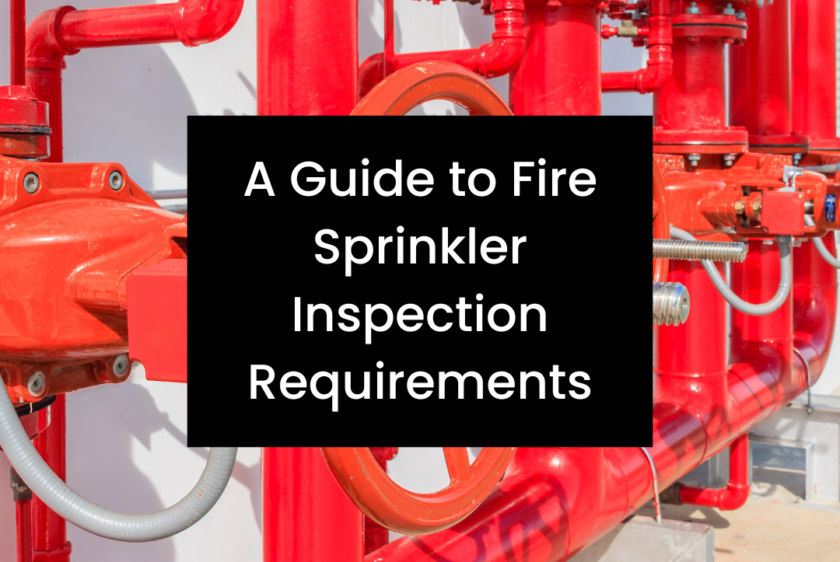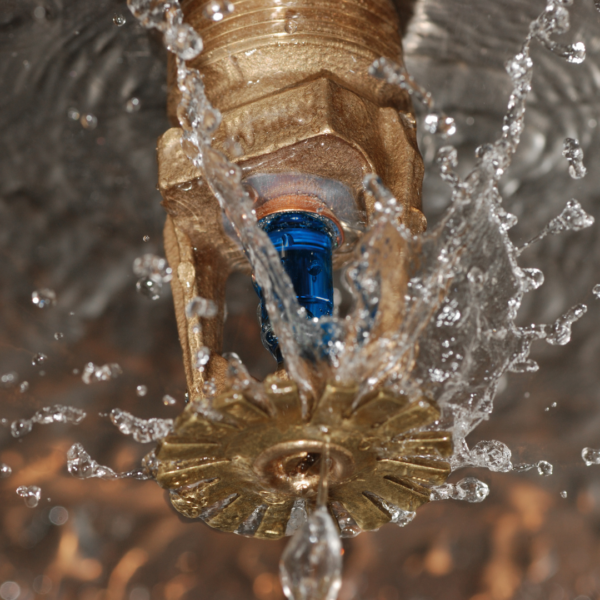Ensuring the proper function of fire sprinkler systems is critical for maintaining safety and compliance. Adhering to fire sprinkler inspection requirements helps safeguard lives and property while reducing risks associated with system failures.
The National Fire Protection Association (NFPA) outlines these requirements in NFPA 25, the standard for inspecting, testing, and maintaining water-based fire protection systems. So, what are the NFPA fire sprinkler inspection requirements, and how do they ensure your system is always ready in an emergency? Let us break it down so you’ll be prepared for your inspection.
Why Regular Fire Sprinkler Inspections Are Essential
Sprinkler systems are highly effective at reducing the risk of fire-related fatalities by up to 90% and minimizing property damage by as much as two-thirds in certain occupancies, according to NFPA research. However, these benefits hinge on whether the system is regularly inspected, tested, and maintained.
Overview of NFPA 25 and Its Role
NFPA 25 is the foundational standard for fire sprinkler inspection requirements. It sets the minimum standards for inspecting, testing, and maintaining various water-based fire protection systems, including:
- Sprinkler systems
- Standpipe systems
- Fire pumps
- Water storage tanks
- Fixed water spray and foam systems
This standard provides inspection frequencies and defines who is qualified to perform these tasks. Systems must be regularly inspected by trained personnel or licensed professionals.
Fire Sprinkler Inspection Frequencies
Fire sprinkler systems have various components that require inspections at different intervals to ensure functionality. Below are some key examples:
Weekly Inspections
- Verify normal water and air pressures on dry and pre-action systems.
- Check for potential freezing issues in exposed pipes.
Monthly Inspections
- Inspect control valves to ensure they are in their normal position and free from leaks.
- Verify gauge functionality and accuracy on wet systems.
Quarterly Inspections
- Test and inspect water flow alarm devices.
- Ensure fire department connections are accessible and operational.
Annual Inspections
- Conduct main drain tests to verify open control valves.
- Test dry pipe valves, hangers, pipes, and fittings for operational integrity.
- Perform full-trip tests on deluge systems every three years.
Five-Year Inspections
- Test internal conditions of check valves and backflow preventers.
- Conduct sprinkler performance tests to identify aging or defective components.
What Are the NFPA Fire Sprinkler Inspection Requirements for Fire Pumps?
Fire pumps maintain adequate water pressure for sprinkler systems. NFPA 25 requires detailed inspection, testing, and maintenance, including:
- Weekly Inspections: Inspect pump rooms for cleanliness and ensure pump operation.
- Monthly Inspections: Test electric fire pumps to verify no-flow performance.
- Annual Inspections: Perform full-flow tests and inspect diesel fuel quality and pump alignment.
Key Takeaways for Maintaining Compliance
Adhering to fire sprinkler inspection requirements involves more than scheduling annual inspections. Owners and property managers must remain proactive by facilitating regular checks on components like valves, gauges, and alarms.
Hiring licensed Fire & Life Safety professionals ensures complex inspections meet NFPA standards. Ultimately, a well-maintained system protects your building, its occupants and contents.
Prevent Fire Risks Through Regular Inspections
Neglecting regular testing and inspections can leave your building vulnerable during a fire. Promptly addressing deficiencies such as leaks, corrosion, or damaged components ensures your sprinkler system performs when needed most. Protect your property and comply with NFPA 25 by staying ahead of fire sprinkler inspection requirements.
Trust DynaFire for Your Fire Sprinkler Testing Needs
With years of experience in fire protection, DynaFire provides thorough fire sprinkler testing to ensure your systems are safe, compliant, and functioning at their best. After completing your inspection, we will provide a detailed fire sprinkler inspection report, giving you a clear overview of your system’s status.
Our dedicated team prioritizes your safety and compliance. Contact us today to schedule your fire sprinkler testing with our trusted fire protection professionals!







